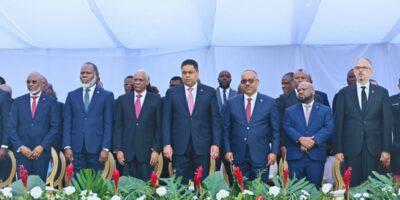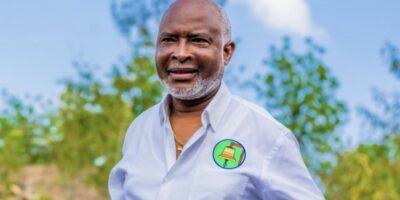A draft of the decree obtained by AyiboPost suggests substantive differences between the existing government and the position of current Presidential Council members
Prime Minister Ariel Henry announced his intention to resign after the establishment of a Presidential Council and a government on March 11, 2024.
Since then, political parties and groups, supported by the Caribbean Community (CARICOM), have been working to select members of this structure, and to formalize a legal framework for its operation.
A draft of the decree creating the Council issued by the government, obtained confidentially by AyiboPost, as well as a similar document developed by current members of the council, suggests substantive differences between the two parties.
In its draft, the Presidential Council reserved the position of Prime Minister exclusively for political parties forming the Council. The current version of the decree—which may still undergo changes before publication—leaves this door open to any Haitian, according to an analysis by a source familiar with the process.
The Presidential Council reserved the position of Prime Minister exclusively for political parties forming the Council.
The power to revoke the Prime Minister has been removed in the revised decree.
In the Presidential Council’s draft of the decree, commitments made before CARICOM have been omitted.
According to the source, the decree that the government is preparing to publish incorporates all of the elements stipulated in a document called a « commitment » transmitted to the government by CARICOM.
This draft of the decree also stipulates that one must accept the United Nations resolution for the deployment of a multinational force in order to be a member of the Council—which was not included in the Council’s draft decree.
Those indicted, accused, and sanctioned by the United Nations, and those convicted in any jurisdiction cannot be members of the Presidential Council.
The Council wanted to create « sectoral cabinets, » each coordinated by a Counselor-President, divided according to the following 6 major initiatives: security, elections, constitutional reform, sovereign national conference, economic recovery, and social and humanitarian recovery.
These cabinets are not included in the latest version of the decree obtained by AyiboPost.
Furthermore, members of the Council are not allowed to be authorizing officers or accountants.
The draft of the Presidential Council decree eliminated commitments made before CARICOM.
AyiboPost has also obtained a document titled « Political Agreement for a Peaceful Transition, » consisting of around 50 articles. This document provides details on the creation, functioning, and main missions of the Presidential Council.
According to the agreement, a Presidential Council, a Government led by a Prime Minister, and a Government Oversight Body (OGAC) are the three governing entities that will ensure the transition.
The OGAC will be responsible, in the absence of parliament, for overseeing the actions of the executive branch. The guidelines and missions of this structure will be determined by a decree from the presidential council.
Other structures such as the National Security Council, the National Conference on Constitutional Issues, and the Truth, Justice, and Reparation Commission will be established subsequently, according to the agreement.
Read also : Opinion | The new presidential council of Haiti raises doubts
Security, constitutional and institutional reforms, and the organization of elections are the 3 main priorities of the presidential council.
It is not clear whether this agreement reached among the current members of the Council will be taken into account by the government before the decree is officially published in Le Moniteur, the country’s official newspaper.
By Widlore Mérancourt & Wethzer Piercin
Cover image edited by AyiboPost showing the current members of the presidential council.
Watch the intervention of the writer Monique Clesca, former UN official and member of the Monitoring Bureau of the Montana Agreement, on the socio-political situation of the country, in the program « Chita Pale » with AyiboPost:
Keep in touch with AyiboPost via:
► Our channel Telegram: click here
► Our Channel WhatsApp: click here
► Our Community WhatsApp: click here







Comments